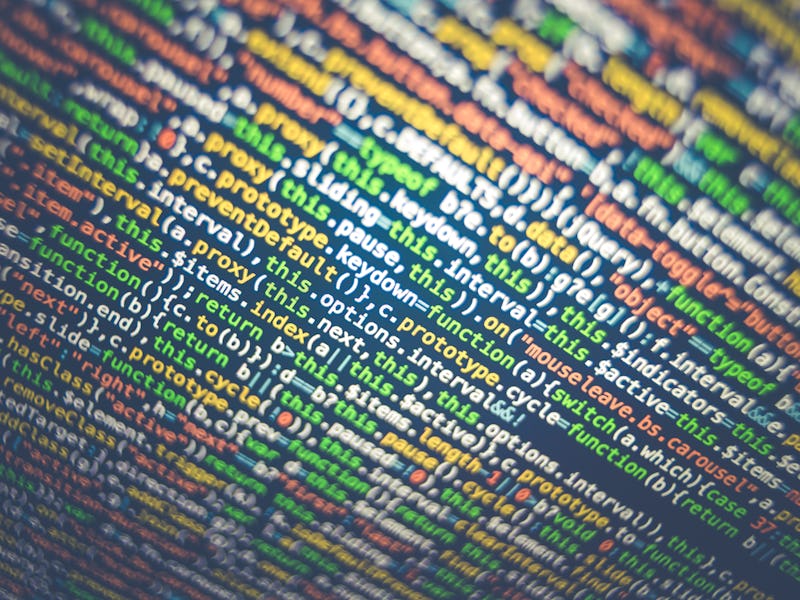Cambridge Analytica's ‘Psychographic Modeling Technique’: What to Know
Here's how 50 million Facebook users helped the Trump campaign.

Prominent data analytics firm Cambridge Analytica harvested private information from more than 50 million Facebook users without their permission, the New York Times and the Observer of London reported on Saturday. The data was eventually used to develop insights for President Donald Trump’s 2016 election campaign, a controversial technique now being called “Psychographic Modeling.”
Considered one of the largest data leaks in Facebook’s history, the breach allowed Cambridge Analytica to exploit the private online activities of American voters and use that information to amplify Trump’s 2016 campaign.
On Friday, Facebook announced in a blog post that Cambridge Analytica had been suspended for violating the company’s standards and policies, leaving many uncertain and rightfully uneasy about how this massive heap of personal information was used.
Cambridge Analytica's logo
Thanks to whistleblower Christopher Wylie, who helped found Cambridge Analytica and worked there until late 2014, as well as six former employees interviewed by the Times, both newspapers were able to piece together how this operation was able to harvest information from over 50 million accounts and to what purpose.
“We exploited Facebook to harvest millions of people’s profiles. And built models to exploit what we knew about them and target their inner demons. That was the basis that the entire company was built on,” Wylie told the Observer.
How did Cambridge Analytica Get the Data?
Facebook said that just 270,000 people “gave their consent” to allow a third-party app, “thisisyourdigitallife,” to access their social information. The app, developed by University of Cambridge professor Dr. Aleksandr Kogan, offered personality predictions and billed itself as a research app used by psychologists.
Facebook makes a point to say that Kogan gained access to this information in a legitimate way, but “by passing information on to a third party, including SCL/Cambridge Analytica and Christopher Wylie of Eunoia Technologies, he violated our platform policies.”
That doesn’t explain how 270,000 “consenting” accounts were able to provide access to over 50 million people. What Facebook didn’t mention is that the app also collected the information of the test-takers’ Facebook friends. The more friends a user had, the more data was made available, leading to the accumulation of a data pool that had intelligence on tens of millions of people.
How did Psychographic Modeling Help the Trump Campaign?
According to Federal Election Commission records, Trump’s campaign paid Cambridge Analytica more than $6.2 million in June 2016. On the company website, Cambridge Analytica names the Trump campaign as a client and boasts that it “provided the Donald J. Trump for President campaign with the expertise and insights that helped win the White House.”
Wylie said that while working for the company, he was interested in using inherent psychological traits to affect voters’ behavior. He assembled a team of psychologists and data scientists who experimented with online manipulations abroad, specifically in the Caribbean and Africa, where privacy rules were considered more lax.
The Psyschographic Modeling Technique may have helped the Trump campaign
Wylie recalled meetings with wealthy Republican donor Robert Mercer, former Trump advisor and Breitbart News leader Steve Bannon, and Cambridge Analytica CEO Alexander Nix. He shared meetings where Bannon was “intrigued by the possibility of using personality profiling to shift America’s culture and rewire its politics.” Initially, Cambridge Analytica struggled to find researchers willing to offer psychometrics testing but succeeded after connecting with app developer Dr. Kogan.
With Kogan’s wealth of Facebook data, the team was able to understand whether a voter was a religious, agreeable, neurotic, spiritual, depressed, etc. They tested for sensationalist interests, fair-mindedness, and even ranked individual’s ability to “self-monitor” or “change [their] personality depending on who [they’re] with.”
With these details and specific psychological traits recorded, “the firm claimed it would provide a uniquely powerful means of designing political messages,” the Times reported.
Where Is the Data Now?
Facebook stated that upon learning of Kogan’s violations, it removed the app from the platform and demanded certifications from all involved parties that the information had been destroyed. Cambridge Analytica as well as Kogan certified that they destroyed the data.
“Several days ago, we received reports that, contrary to the certifications we were given, not all data was deleted,” Facebook shared. “We are moving aggressively to determine the accuracy of these claims.”
It’s safe to assume that the data, which Wylie described as “arsenal of weapons,” is still available to the highest bidder. Facebook claims it will take legal action if necessary, but for the time being, over 50 million American voters are still contributing to that loot with their psychographic models.